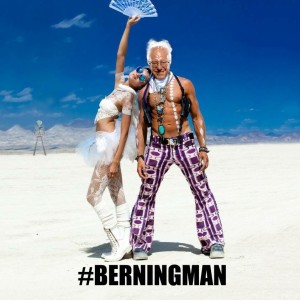By Scott Wilhite
Managing online editor
Hashtags are a dime-a-dozen and some of them are very clever. But this is a presidential election year, so it’s time to get (sorta) serious, sort of. #Berningman is the latest in a series of witty catch phrases that seems to, well, gain #Bernmentum with millennials. As a student of the science of politics and the study of our society, I cannot for the life of me figure out why someone like Bernie Sanders can harness so much popularity with the 20-something crowd, only to burn out after the new has worn off. If Sanders is going to win, however, millennials are going to have to do three things they’ve never done before: 1. Organize in ways the 2008 Obama campaign could only dream about; 2. Register to vote. Only this time, really register to vote and convince about three of their closest friends to (really) register to vote too; and 3. Get ready to take some solid hits on the chin because politics is a contact sport and the worst has yet to come.
In my lifetime, Ross Perot was the first outsider who, probably for some noble reason, decided to shake things up in the 1992 election and run for president. Even though hashtags were not around back then, the term “folk hero” was used by his supporters. Perot’s platform was mostly conservative with a promise to fix the economy. I should point out that we had just come out of a trickle down economic philosophy a few years earlier, and like it or not, that started undoing the regulations and social programs that were put into place after WWII. This isn’t a history lesson, but this part is important in the context of a popular presidential candidate who claims to be a Democratic Socialist.
In the end, Perot’s campaign failed the most in connecting with black voters, liberal democrats and conservative republicans. He faired well enough with all the other social groups to have made it a close race, had he only scored better with those three groups. Sanders has two of those same problems. So far, he’s been unable to gain any ground among African Americans and republicans (generally).
There are some differences between Sanders and Perot, but there are also some strong similarities too. If the Sanders supporters truly want to make a difference in this cycle and elect this guy Sanders, along with following the three items above, they would do themselves a big favor by understanding what Sanders’ version of socialism is, how different, or not, it would be from our current form of capitalism, and then how to effectively articulate that to anyone who asks.
Sanders and Perot are a lot alike in their view of how our economy should run. Perot and his supporters were strongly against the North American Free Trade Agreement (NAFTA), and before that glaze becomes permanent across your eyes, what NAFTA (signed in 1992) set out to do was open up international trade by removing tariffs with Mexico and Canada. In other words, it made importing and exporting goods in and out of our country easier and less expensive and as Perot put it (and I actually remember hearing him say this in a debate), as soon as NAFTA is signed, “We’ll all hear a giant sucking sound towards Mexico” as that’s where all our economic growth will go. Perot wanted blue collar workers in the U.S. to get a fair wage for their work, and this was Perot’s main issue in the 1992 election.
Jump forward 23 years and that same issue is exactly what has given Sanders a platform to run on, income inequality. In one sense, Sanders is running on a post-NAFTA economy where there is a giant sucking sound going on, and it is a result of an ever-widening global economy, but it’s a little more nuanced than what everyone thought it would be like in 1992.
Sanders is a true left candidate and what that means is he is a bonafide liberal, and we’ve never really had that, and that’s another point Sanders supporters would benefit from understanding. On the economy, Obama is a very middle of the political ideological road president. Sanders is not. But that’s not necessarily bad so long as it puts a few reasonable regulations on corporations and levels the global economic playing field out a little more until the rest of the world catches up with our wealth and opportunity.
The first Democratic primary election is in Iowa on Feb. 1 and Clinton will probably win it by a large margin. That’s going to hurt those young, fair-weathered, creampuff Sanders supporters Megyn Kelly likes to make fun of. There are three more Democratic primaries in February and Sanders will most likely win one, lose another, and the third is up for grabs at this point. Sanders could come out of February with a 2-3 record, and that’s not a bad place to be on March 1 of a presidential election year. But his base is going to have to ramp it up if they’re serious about winning it all.
